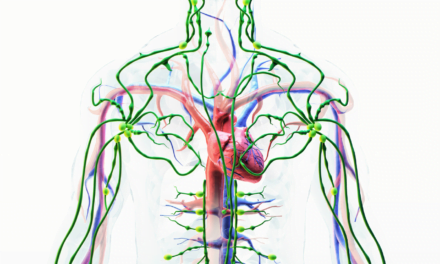Autoimmune Hemolytic Anemia (AIHA) is a rare and potentially life-threatening condition in which the body’s immune system mistakenly attacks and destroys its own red blood cells. This results in a decreased ability to carry oxygen, leading to symptoms such as fatigue, jaundice, and increased heart rate. Traditional treatments for AIHA often involve immunosuppressive medications and transfusions, but these approaches come with limitations. In recent years, there has been growing interest in exploring the potential use of anabolic steroids in the treatment of AIHA, aiming to modulate the immune response and alleviate the severity of the disease.
Understanding Autoimmune Hemolytic Anemia (AIHA)
AIHA is a heterogeneous disorder with different types based on the temperature at which the antibodies target red blood cells. Warm antibody AIHA is the most common type and occurs at body temperature, while cold agglutinin disease and mixed-type AIHA occur at lower temperatures. The condition arises from a malfunction of the immune system, leading to the production of autoantibodies that recognize the body’s own red blood cells as foreign and mark them for destruction. This process ultimately results in anemia and can lead to serious complications, particularly in severe cases.
Anabolic Steroids: Mechanism of Action and Medical Uses Anabolic steroids
often associated with athletic performance enhancement, differ from corticosteroids in their effects and mechanisms of action. They primarily function by binding to androgen receptors in cells, influencing various cellular processes such as protein synthesis, cell growth, and immune modulation. Medical applications of anabolic steroids extend beyond muscle-building and include treatments for conditions like muscle wasting, osteoporosis, and certain types of anemia.
The Potential Role of Anabolic Steroids in AIHA Treatment
The concept of using anabolic steroids to treat AIHA arises from their potential to modulate the immune system. Research suggests that anabolic steroids could influence the immune response, potentially leading to a suppression of the autoimmune attack on red blood cells. This perspective has sparked interest in investigating whether anabolic steroids could serve as a complementary or alternative treatment option for AIHA patients who do not respond well to conventional therapies.
Anabolic Steroids and Immune Modulation
Studies have shown that anabolic steroids can affect various components of the immune system. They may impact immune cells’ activity and proliferation, alter cytokine production, and promote anti-inflammatory pathways. While the exact mechanisms by which anabolic steroids influence immune modulation are complex and multifaceted, they provide a foundation for understanding how these substances could potentially counteract the immune dysfunction seen in AIHA.
Clinical Studies and Case Reports
While research on anabolic steroids’ role in AIHA treatment is limited, there are some noteworthy clinical studies and case reports. These studies have explored the effects of anabolic steroids on AIHA patients, both in terms of symptom improvement and immune response modulation. Case reports have highlighted instances where anabolic steroids led to remission or reduced disease severity in AIHA patients who had previously been resistant to other treatments. However, the small sample sizes and variations in study designs underscore the need for more comprehensive research.
Considerations and Challenges
Despite the potential benefits of using anabolic steroids in AIHA treatment, several considerations and challenges must be addressed. Anabolic steroids come with side effects, including cardiovascular complications, liver toxicity, and hormonal imbalances. Additionally, ethical concerns surround the use of these substances in medical contexts, particularly given their history of abuse in sports. Standardizing dosage regimens, administration protocols, and monitoring strategies is crucial to ensuring patient safety and treatment effectiveness.
Conclusion
The exploration of anabolic steroids as allies in AIHA treatment represents a promising avenue of research. While the available evidence suggests potential benefits in immune modulation and symptom improvement, further studies with larger patient cohorts and rigorous methodologies are essential to establish their role definitively. The potential impact of anabolic steroids in AIHA extends beyond this specific condition, potentially influencing treatment approaches for other autoimmune diseases. As medical knowledge advances, personalized treatment plans that incorporate anabolic steroids may offer new hope for individuals battling autoimmune hemolytic anemia and related conditions.
QNA
1: What is Autoimmune Hemolytic Anemia (AIHA), and why is it considered a challenging condition to treat?
A1: AIHA is a condition where the body’s immune system erroneously attacks its own red blood cells, leading to anemia and various symptoms. It poses a challenge because conventional treatments often involve immunosuppressive medications and blood transfusions, which may not be effective for all patients and can have side effects.
Q2: How do anabolic steroids differ from corticosteroids, and what makes them potential candidates for AIHA treatment?
A2: Anabolic steroids differ from corticosteroids in their mechanisms of action. They primarily influence cellular growth and protein synthesis, which could potentially extend to immune modulation. This property has sparked interest in exploring their role in AIHA treatment to suppress the autoimmune response and improve patient outcomes.
Q3: What role do anabolic steroids play in immune modulation, and how might this relate to AIHA?
A3: Anabolic steroids have been found to affect immune cell activity, cytokine production, and anti-inflammatory pathways. In the context of AIHA, these properties could potentially counteract the immune dysfunction that triggers red blood cell destruction.
Q4: Could you provide examples of clinical studies or case reports that highlight anabolic steroids’ effects on AIHA patients?
A4: While research is limited, there are case reports showcasing instances where anabolic steroids led to symptom improvement or remission in AIHA patients resistant to traditional treatments. However, these reports emphasize the need for more extensive research with larger sample sizes and controlled methodologies.
Q5: What are the potential challenges and risks associated with using anabolic steroids for AIHA treatment?
A5: Anabolic steroids come with potential side effects, including cardiovascular issues, liver toxicity, and hormonal imbalances. Ethical concerns about their use, considering their history in sports, also need to be addressed. Additionally, standardizing dosage, administration, and monitoring protocols is crucial to ensuring patient safety.
Q6: How could research into anabolic steroids’ role in AIHA treatment impact the broader medical landscape?
A6: Research into anabolic steroids’ effects on AIHA could have implications for treating other autoimmune diseases. The insights gained from studying immune modulation in AIHA might inform treatment strategies for related conditions, opening up new avenues for personalized medicine.
Q7: What does the future hold for anabolic steroids in AIHA treatment?
A7: The potential of anabolic steroids to revolutionize AIHA treatment is promising, but more rigorous research is needed to fully understand their benefits and risks. As medical knowledge advances, personalized treatment plans incorporating anabolic steroids could offer new hope for individuals with AIHA and other autoimmune disorders.
Q8: How might the ethical concerns surrounding anabolic steroid use in sports impact their acceptance as a medical treatment?
A8: The historical association of anabolic steroids with sports performance enhancement raises ethical considerations. It’s essential for the medical community to distinguish between abuse in sports and legitimate medical applications. Transparent communication, rigorous research, and stringent guidelines can help address these concerns.
Q9: What advice do you have for AIHA patients and their caregivers who are considering or discussing anabolic steroid treatments?
A9: AIHA patients and caregivers should engage in open discussions with their healthcare providers. They should ask about the potential benefits and risks of anabolic steroid treatments, consider alternative options, and make informed decisions based on their unique medical situations.
Q10: In conclusion, what message would you like readers to take away from this article?
A10: The article underscores the potential of anabolic steroids in revolutionizing AIHA treatment by modulating the immune response. While the research is promising, it also emphasizes the need for further comprehensive studies, ethical considerations, and standardized protocols. The exploration of anabolic steroids as allies against AIHA highlights the continuous pursuit of innovative solutions to challenging medical conditions.
Author

Dr. Aditya K. Sharma
I am Dr. Aditya Sharma, a dedicated urologist specializing in kidney transplants and advanced urological surgeries. My career is driven by a passion for delivering exceptional care and pioneering surgical techniques. Outside the operating room, I have a keen interest in studying the effects of anabolic steroids on bodybuilding, seeking to understand the fine line between enhancing performance and maintaining health.








